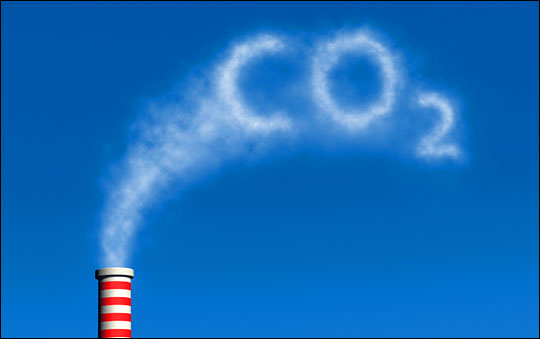
Source: http://grist.org/article/2010-09-27-a-price-on-carbon-is-a-must-says-delaware-senator/ (also a good article!)
Today humanity faces the threat of global climate change based on our use of fossil fuels. At first we didn’t know their use would have such negative consequences or costs. It generally seemed that they were great and amazing, and some thought of fossil fuels as a gift from God. Governments subsidized their extraction and use because it makes sense to encourage good things. We flourished, expanded, and got used to spread out cities, long commutes, and long-distance travel enabled by cheap fossil fuels.
But now we know that fossil fuels are causing climate change that will increasingly affect us all, but especially the poor, vulnerable, and those living on coasts.
We know that fossil fuels have a significant and increasing cost. But we don’t actually count their costs in a meaningful way, within the framework in which so many of our decisions are made everyday: the economy. So we continue to make bad decisions like the tower builder in Jesus’ parable. Even when we subsidize renewable energy, our fossil fuel infrastructure and subsidies for fossil fuels are still there. Fossil fuels stay cheap despite their huge cost.
Our failure to count the cost of fossil fuels in a real and meaningful way will only ensure that we continue to use them. If it’s more profitable to use fossil fuels than other sources, or it’s still profitable to use a significant proportion of them in our energy mix, we’re in trouble.
A fundamental “counting the cost” solution is a carbon fee. If we make fossil fuels more expensive proportional to the amount of emissions they release, we will count the cost of fossil fuels in the way the world works: money. If it becomes clear that the nations are making all fossil fuels more expensive (not just picking and choosing certain types), businesses, entrepreneurs, researchers, investors in power plants, and every day people will have a major incentive to implement and further develop alternatives to fossil fuels.
If we start the carbon fee low, it won’t be a big shock to the system. If we make the carbon fee increase every year, then this is predictable and transparent, incentivizing the whole world to start planning now in a meaningful and realistic way to transition away from fossil fuels within the next couple of decades. The fee would be paid by the corporations that extract fossil fuels or import them into our country. This is simple, easy to manage, and avoids the complication of determining each person’s carbon footprint.
This type of fee wouldn’t shut down any power plants tomorrow (easing the worry of lost jobs and shocks to families). But you better bet that we’ll stop building new fossil fuel power plants in a hurry because business people would see that fossil fuel profits will decrease every year and eventually become zero. In the US in 2015, electricity from new power plants was about 68% from natural gas, 26% from wind, and 6% from solar. This is still too much fossil fuels, especially since a good chunk of the natural gas comes from hydrofracking which has major methane leakage issues.
Finally, the carbon fee should be revenue neutral, which means that the government does not keep and spend the money raised. Instead, the money is returned evenly to US households. This does two things: first, it ensures that the poor and middle class aren’t burdened by the fee since price increases of fossil fuels and products based on them or their energy would occur. Importantly, because of the refund or dividend, the poor would make money overall and on average the middle class would break even. People would also be incentivized to reduce their use of fossil fuels, in which case a larger portion of their carbon refund is profit.
Second, a revenue neutrality (the refund or dividend) makes the carbon fee much more politically feasible in the United States: the economy would grow from investment in alternative energy and from increased spending due to the dividend. Further, revenue neutrality is attractive to conservatives since it’s a market based solution and not an actual tax or regulation. If the United States can lead on this, and show that it is beneficial, then other countries will follow! France and Victoria, British Columbia (Canada) have implemented very similar proposals to great success.
Jesus’ parable about counting the costs simply makes sense. If we don’t count the cost of our actions it’s far too easy to make bad decisions and be unprepared. This is a spiritual and moral matter. Will we find ways to make our systems reflect the reality of the growing costs of fossil fuels? Are we serious about root cause solutions to get off of fossil fuels? Are we serious about the real impacts of climate change to people all around the world?
Any questions on this so far? There’s a lot of information here, and I remember when I first heard about carbon fees I had a ton of questions. I’ll follow up with further posts going into more details about how it would work, and common questions. But in the meantime if you want to do your own research, a good place to start is Citizens’ Climate Lobby or the Carbon Tax Center.
